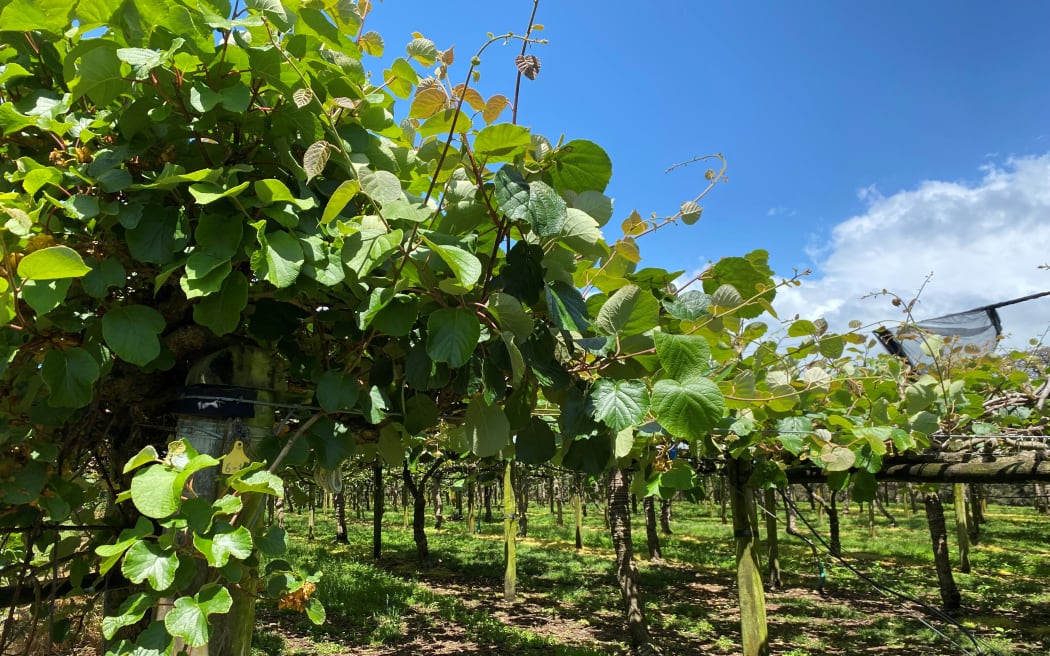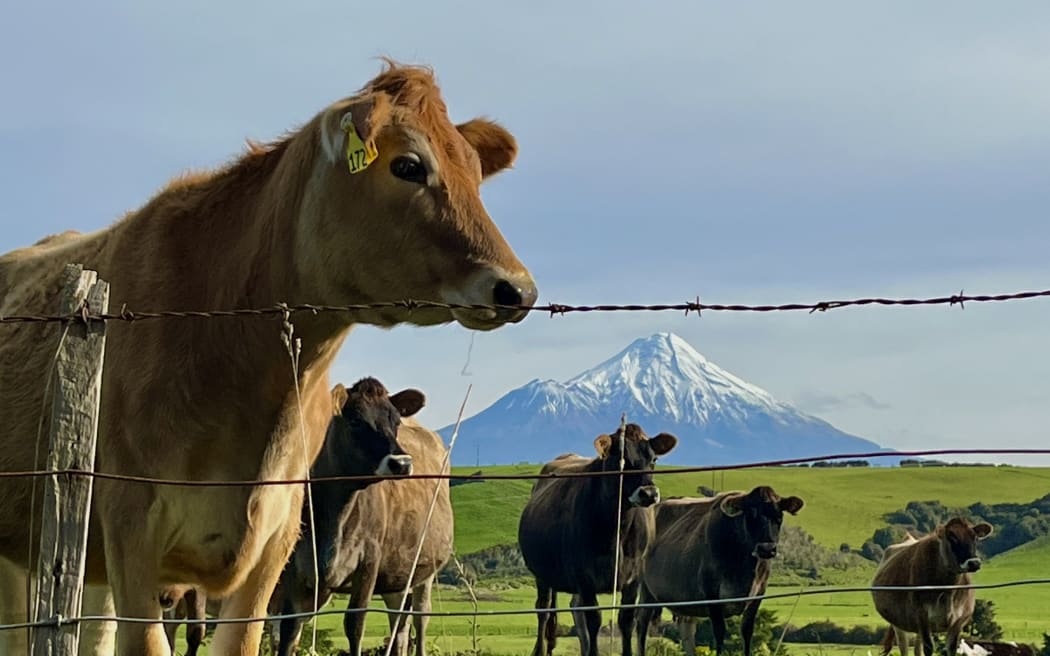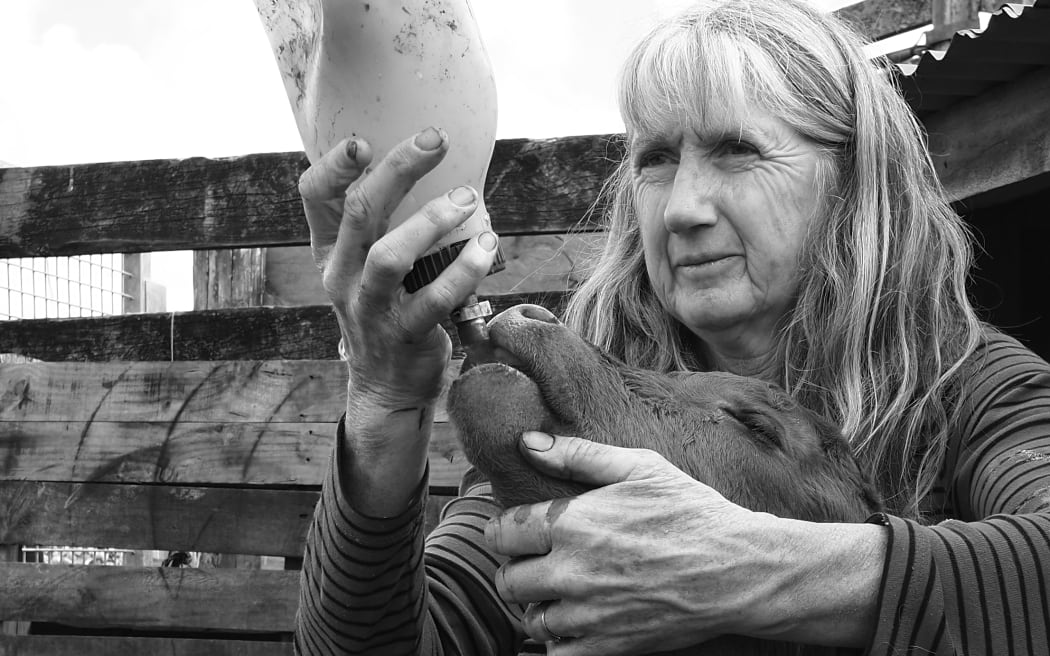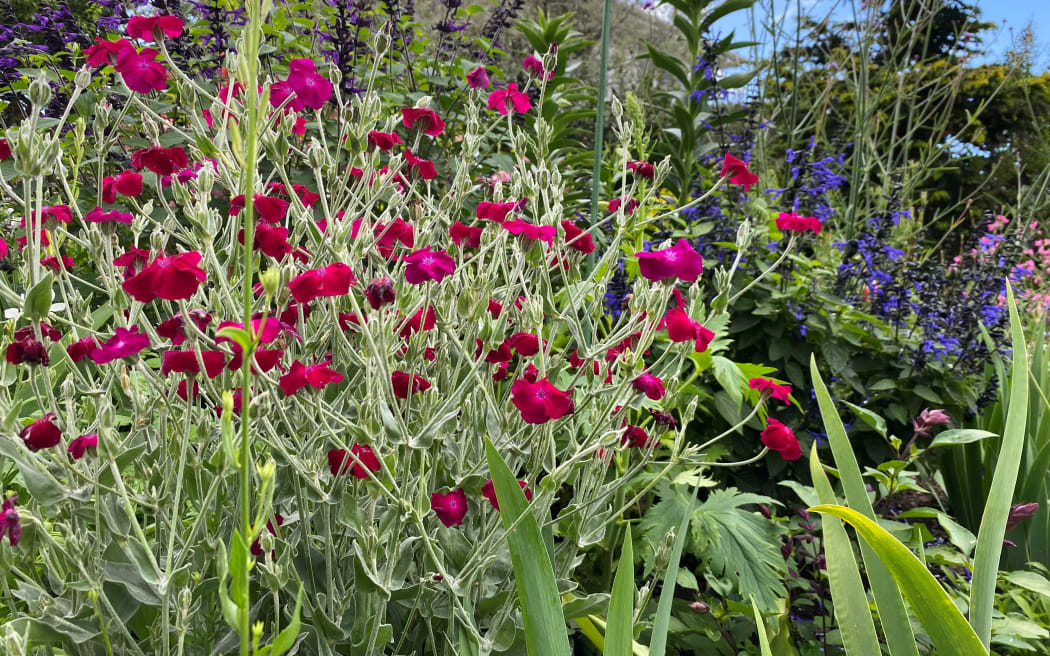There's an explosion of grass in Waikato this week after countless days of rain and warmish weather, calves are being weaned and drenched on the West Coast and winter crops are in the ground in South Otago.
Daily downpours exceeding 90 millimetres in Pukekohe have saturated the ground and interfered with planting and harvesting. Onions and potatoes that should have been in the shops are either lying on the wet ground or still under it. Foliar diseases are now appearing in many different crops.
There's an explosion of grass in Waikato this week after countless days of rain and warmish weather. There is surplus grass everywhere which is good to see but hard to control. Silage ontractors are struggling to keep up. The feed quality has reduced significantly as a result of the plant moving from a vegetative to a reproductive state - all stalky and full of seeds. Maize crops are all in and off to a reasonable start while AB mating has generally finished for the year.

Photo: Leah Tebbutt
Our contacts are saying it's the worst spring ever in Bay of Plenty and after this week's rain, there's no hope of that changing. NIWA stated this week one of the wettest soils for this time of year is in the Coastal Bay of Plenty. It's come at a critical time for pollination, especially for the green Hayward variety of kiwifruit. It is in flower at the moment and there is a strong relationship between pollination and good-sized fruit. But with heavy downpours and strong wind events, it's hard to get bees on the orchards.
It's been hosing down in King Country. Rivers flooded on Wednesday up on top of the flats but our contact says they will take the rain when they get it - although the rain has put a few things behind such as dagging and shearing. There hasn't been any chance to shear for at least 10 days now. It's put a bit of a question mark on whether many will be able to attend Fieldays next week as farmers won't be wanting to take a day off when they're already behind the workload.
Some North Taranaki properties were hit by a tornado this week. This time of year the rain is always welcome, but it's getting to the point there has been a bit too much. Our contact says he's had well over 100 millimetres of rain in the gauge over the last ten days. Good November rain usually indicates a droughtless summer. Silage crops are close to being harvested so a bottleneck of contractors is anticipated in the next few weeks.

A herd of cows in Taranaki Photo: David Hancock
Gisborne has been unsettled and blustery. Regular rainfall has meant there is grass for Africa but everything could do with a bit more sunshine now - even the lambs. Their weight isn't up to where it would usually be. But space is tight at the works so it may even out in the end. Our contact says it's one of the best springs, for sheep and beef, he's had in a long time.
It's a tropical week in Hawkes Bay. Warm, humid, with cloud building into thunderstorms by the evening. Our contact says it hasn't been as bad as the rest of the country but it is likely some stone fruit growers had more rain than they would like. The first of the nectarines are starting to be harvested and cherries are not too far away. After a very lousy spring, the weather came right just in the nick of time. Good heat came from October 24th, and the land began to dry out. Had the cold wet weather continued, our contact says, they would've been in trouble.
Very wet and very windy in Manawatu. For some reason, soil moisture isn't as bad as it was in the winter, despite the bucketloads of rain. No doubt thanks to the warmer and windy elements drying things are. Some farmers are through the process of drenching lambs, and it's now time to start weaning and shearing.
While we're in the area ... those behind a syndicate to buy Mangaohane Station - and who featured on the programme last week - say they've had to withdraw after discovering there are Waitangi Tribunal claims on the farm. A local Māori trust has a claim to formalise passage through the farm to land it owns at the rear of the property which is not accessible directly by road.

A calf being fed Photo: John Grant
Wairarapa has been humid this week with heavy rain coming by the afternoon and into the evening. As of Wednesday, the wind has picked up with strong gusts making things fall over. Luckily it was beautiful weather for TOAST Martinborough at the weekend - the first event since 2019. About eight wineries hosted around 8-thousand enthusiastic and well-behaved patrons our contact says. On the vines, positive flowering signals a good season ahead as long as there are enough workers to get the job done.
Squally rain is holding up work in Motueka. Thinning started this week on the early apple varieties. There has been quite a bit of work thinning surplus fruit despite good results of chemical thinning. It's been typical spring weather, with rain simply slowing the work down. Trees and crops are looking healthy and Hayward kiwifruit pollination is well over half way - with plenty of fine hours in the day to let the bees do their work.
There's been a fresh dusting of snow on top of the mountains around Marlborough in the past few days. It also rained every day for the past week - about 63 millimetres all up. Good for grass growth but that's enough, thanks. Our contact farms merino and cattle in the high country where it takes a bit longer to grow things. He's just finishing up his tailing and getting the cows ready for the bull to go out around the first week of December.

Spring florals are a picture of colour. Photo: Leah Tebbutt
Endless wet weather on the West Coast is putting a dampener on farm jobs. Seed heads are floating around now so feed quality is slowly starting to become a bit more of an issue. Calves have started to be weaned and drenched and they've stopped being fed which is one less job for farmers to juggle.
A million-dollar rain fell across Canterbury last weekend with between 50 and 70 millimetres. A huge relief for some areas which were drying out, and more is in the forecast. Lamb growth has been slow this spring so far and with schedules dropping quickly sheep farmers are feeling a bit disappointed. Our contact says if only they could get staff shortages at the works sorted and at least not have throughput issues hampering things as well. Grass growth will now take off with good soil moisture.
It's looking good in South Otago. Rain showers tickling along and most farmers are reasonably up to date as the weather isn't holding them back. Winter crops are in the ground with a few more to go. There is plenty of grass feed and stock is doing well. Although our contact says he's a bit concerned about schedules dropping back for both beef and lamb, plus rising costs, with interest being the big one at the moment. But the first A&P show this weekend since the beginning of the pandemic is something to look forward to.
Another good week in Southland. Our contact says the whole province is looking a real picture, and well better than last year. A little bit of rain over the past couple of days has kept soil moisture up. There is quite a bit of surplus feed around the area, it's the main topic on farmers' lips, although it's not a bad problem to have. However, it did catch a few farmers off guard with how quickly grass grew. Our contact says some farmers, him included, have dropped the ball a little trying to harvest it in good time and feed quality isn't the best and production has dropped as a result.

